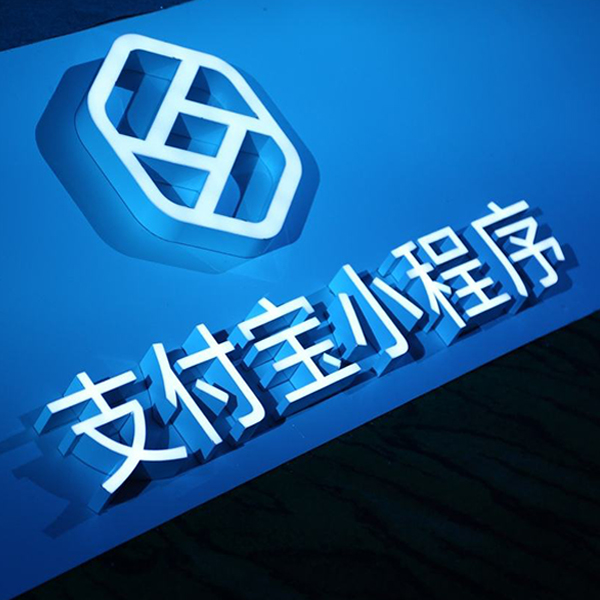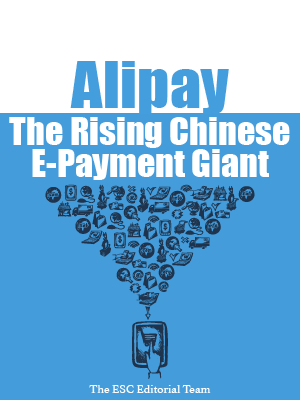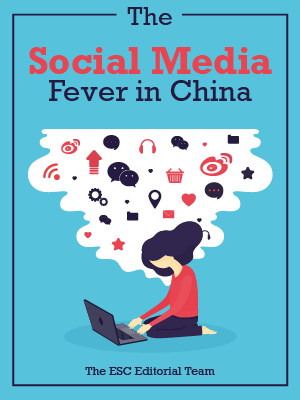Ecommercestrategychina.com uses cookies and other technologies to provide you a better browsing experience. You can get more information regarding the use of cookies, or decline it whenever by clicking Privacy Policy. By using this site or clicking “Okay”, you give us the consent to the use of cookies.
OKAY
Alipay officially launched its mini programs in early August, and the "Mini Program Collection" was added to the first screen as a default application. This means that the mini program will be another competition between WeChat and Alipay.
Through this article, we will introduce Alipay Mini Program from two aspects:

Mini program is the trend of mobile Internet development, and WeChat is the first to establish a complete Mini Program ecology
WeChat is an important driver to bring mini programs to the mobile Internet market and make it a hot spot.
For users, mini programs provide better user experience than browsers and require no download or installation. For developers it solves the adaptation problem of different systems and devices and reduces the hardware requirements. As a result, many apps began to develop mini program versions to attract more users.
WeChat has more influence than the other domestic progressive web apps. Fast apps and other mini-program platforms came on the market relatively late. And when it comes to mini programs, it is almost always referred to as the WeChat Mini Program.
WeChat announced the Mini Program on July 11, 2018. So far, it has launched more than 1 million mini programs and has 1.5 million developers. Mini Programs are opened four times a day per person. Compared to the currently around 2 million apps in the App Store and 3.6 million in Google Play Apps, the WeChat Mini Program has become a stand-alone department, a large App market as well as a distribution channel.
Alibaba’s original intention to build mini programs is to compete with WeChat
The main reason for Alipay to start mini programs is the competition with WeChat. It tries to fight the WeChat Mini Programs by maintaining its own e-commerce and payment business.
- Mini program helps to integrate the traffic into Alipay
The main advantage of mini programs is that they are lightweight and easy to use, without the need for installation. In contrast, it is much more difficult for users to install a native APP because the native APP requires that users download and install from the application platform and then log in to use them. Alipay built the mini program and controlled it in the Alipay ecosystem. The mini programs only support the Ali-System account to log in and use Alipay to pay.
Ali Apps such as Xiami music, which themselves do not have a high market share, take the opportunity to attract more users through the Alipay mini programs. Apps like Taobao and Tmall with rich content are slow to load and take up a lot of space on the user’s mobile devices. Mini programs aggregate the traffic that was originally scattered on each APP with Alipay, making Alipay a central platform for distributing traffic in the future.
- Alipay Mini Programs support Alibaba’s strength in e-commerce and mobile payment
The WeChat mini program made Pinduoduo a sought-after product and improved JD’s shopping experience, which obviously impacted Alibaba’s e-commerce market share. JD and Pinduoduo meet the needs of consumers at different levels, while other mini programs on WeChat can meet each one’s individual needs. The abundance of material categories makes Taobao and Tmall relatively less important in the consumers’ choice. Besides, the social benefits of WeChat also put competitive pressure on Alibaba’s further development on e-commerce.
At the same time, WeChat users enter e-commerce, life service area and games through the WeChat Mini Program, buying goods and other services with WeChat Pay. As a result, both Ali’s e-commerce business and Alipay are under competitive pressure from WeChat Pay.
Alipay launched mini programs to maintain its own traffic within its platform. At present, Weibo and Youku, which are part of Alibaba’s ecology, have WeChat mini program versions. Many users are likely to choose the version of the mini program rather than the native APP, which occupies a lot of memory on the phone. If Alipay launches mini programs, it will help strengthen the stickiness between users and Alipay and stop the loss of users to the rival platforms.
In fact, Alipay must face its status when it launches mini program: WeChat unveiled the Mini Program a year ago, took advantage of market opportunities and increased the habit of users using the WeChat Mini Program.
- WeChat uses mini programs to enter the e-commerce market, while Alipay can use mini programs to enter the gaming market
The steady evolution of WeChat Mini Programs has captured some of the Alibaba e-commerce market shares. Competing with Tencent, games will be an opportunity for Alibaba to compensate for its lack of social interaction and lack of traffic.
The performance of some small games from the WeChat Mini Program (such as the “Tiaoyitiao" released in 2018) shows that small games are a great way to increase the time users spend on the program. Compared with the games APP, the advantage of the small game is that it exists completely in the mini program system. It is convenient to transfer game user traffic to Alipay. In addition, the game is also an important payment scenario that helps to activate and strengthen the stickiness of Alipay users. Now Alibaba has an authorised version of “Travel Frog" (a popular game released by a Japan company), let us see how it performs in the market.
- Alibaba and Tencent compete for users in the field of everyday life
The competition of WeChat with Alipay in the mini program also affects the area of everyday life of the Chinese user. First of all, the tool application of everyday life has little influence on account creation. Except on some applications that require a deposit, users are difficult to retain, and it means both parties have the opportunity to grab users from each other. Second, the everyday life service includes both payment and offline scenarios, which gives Alipay and WeChat great market relevance.

Please Login to add comments.

$9.99 $19.98

$9.99 $19.98
By GRLpGpAG January 13th, 2026
555
By GRLpGpAG January 13th, 2026
555
By GRLpGpAG January 13th, 2026
555
By GRLpGpAG January 13th, 2026
555
By GRLpGpAG January 13th, 2026
555
By GRLpGpAG January 13th, 2026
555
By GRLpGpAG January 13th, 2026
555
By GRLpGpAG January 13th, 2026
555GBoWtMxl
By GRLpGpAG January 13th, 2026
555
By GRLpGpAG January 13th, 2026
-1 OR 5*5=25 --